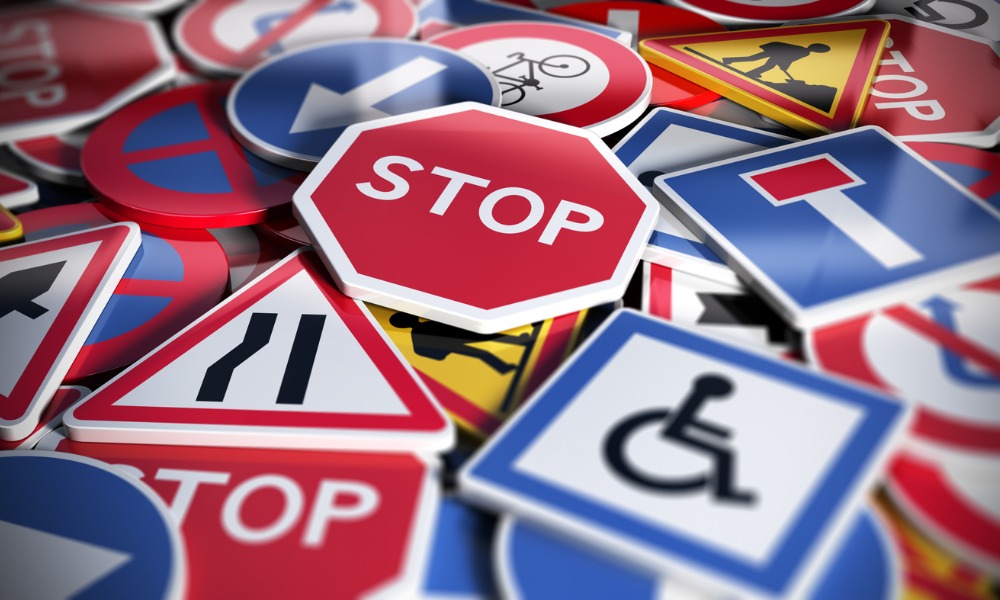
Find out the seven new road law amendments taking effect in 2020

Australian states are continuing to improve road safety by making amendments to their current road regulations. For anyone driving, or contesting a ticket, these seven new road laws that recently took effect in Australia are important to remember.
Light rail crossing rules (New South Wales)
In NSW, new road rules state that pedestrians, motorists or cyclists will not be allowed to cross the non-designated crossing tracks of Sydney’s new light rail system. Those who breach these rules will be given a $76 fine.
Pedestrians will also be required to only cross the tracks at a designated crossing, or at their own discretion 20 or more metres away from a crossing. However, the pedestrianised area of George Street and Central Station are exempt from this rule.
NSW Police told News.com, “This operation aims to reduce the risk of collisions involving pedestrians through education and enforcement at locations identified as high-risk areas.
So far this year (2020), three pedestrians have died on NSW roads.”
Higher fines for mobile phone law offenders (Victoria)
In 2018, a Transport Accident Commission survey revealed that a third of Victorians aged 18 to 60 had used mobile devices while driving. The first Australasian Naturalistic Driving Study found out after observing 400 Victorian and NSW drivers that drivers were “distracted for 45% of the time.”
By May 2019, 137 cases of mobile-use related road deaths were recorded in Victoria alone.”
“Mobile phone use in cars is the drink-driving of this generation,” Victoria’s road safety minister Jaala Pulford told The Guardian.
To prevent and lessen these instances, the Queensland government has decided to raise the fine for drivers using their mobile phones while driving from $400 to $1000 and four demerit points, starting 1 February 2020.
Offenders will then have double demerit points recorded against their traffic history for their following mobile phone offences for one year following their earlier violation.
This will be the highest fine for illegal mobile phone use across Australia.
Slowing down emergency vehicles (NSW)
The recent NSW law that requires drivers to slow down to 40km/h when passing a stationary police vehicle or emergency vehicles with flashing red and blue lights is amended, and changes will take effect this year.
New regulations state that this law is only applicable when traveling on roads with an 80 km/h or less speed limit. However, the fine for violators remains at $448 and three demerit points.
Disability parking eligibility and illegal parking penalty hike (QLD)
Queenslanders should expect some disability parking law changes by mid-2020: Vision-impaired residents will be qualified for disability parking permits under the new law, and fines for people illegally parked in spaces reserved for people with disabilities will be almost doubled, from $266 to $533.
These new rules will “ensure people with vision impairment and their carers are supported with safer and more convenient access in car parks across the state,” Coralee O’Rourke, communities, disability services and seniors minister, said in a joint statement with Mark Bailey, transport and main roads minister.
She added, “[these] changes will bring Queensland into line with [NSW] and [ACT], which both include legal blindness as... criteria in their permit schemes.”
Penalties for lit cigarette butt tossers (NSW)
Police and Emergency Services Minister David Elliot believes that drivers or passengers who toss their lit cigarettes out their windows should be “treated the same as an arsonist would be.”
In an effort to crack down on fire starters, a new penalty introduced by the NSW government punishes people who toss lit cigarettes with a $660 fine and demerit points. Offences committed during total fire ban could be penalised by a fine of up to $11,000 and 10 demerit points.
NSW’s Rural Fire Service Association President Brian McDonough said, “I hope this move makes people think very carefully about the consequences of their actions next time they go to discard a lit cigarette.”
If you witness someone throwing a lit cigarette butt while driving, you may report the incident online.
Extended learning period for new drivers (ACT)
Change has come for licencing rules in the Australian Capital Territory, which took effect at the start of this year, 1 January 2020.
To reduce the risk of road accidents that involve inexperienced and young drivers, the following changes for the learner and provisional drivers in the ACT are implemented:
Additionally, there is also the introduction of a mandatory Hazard Perception Test, an online test that evaluates your ability to discern potentially dangerous situations on the road before obtaining a provisional license and your ability to respond correctly.
The two-staged provisional license is also introduced: the red P Plate for the first 12 months (P1) and the green P plate for the remaining two years.
Further, the new laws states provisional drivers are no longer able to increase their demerit point threshold or be exempted from displaying P-Plates.
No more speed camera warnings (Western Australia)
Drivers in WA started 2020 with no idea where the mobile speed cameras are located.
WA has decided to remove all speed camera warning signs across the state. They also stopped issuing the regular updates they provide on the exact location of the mobile speed cameras.
As a replacement, the state government will offer a list of the 1800 locations around WA where the cameras might be located, without specifying exactly where.
“This decision is a great outcome for our community, giving us safer roads and help more people avoid the trauma and pain of serious road crashes,” Road Safety Council Chairman Iain Cameron told the Road Safety Commission.